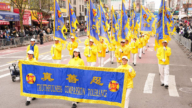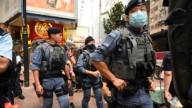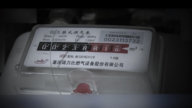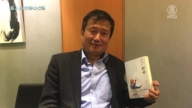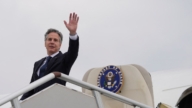【新唐人2013年08月29日訊】中共中央政治局召開會議,決定將在11月召開第十八屆三中全會,議程確定將討論改革。在這次政治局會議中,還通過了一些關於治理腐敗的所謂工作規劃。專家分析,當局將會繼續利用反腐敗這個旗號,打擊政治對手。而在這屆的三中全會中,中共內部的利益集團格局,也將會有一個巨大調整。
中共媒體報導說,中共總書記習近平8月27號主持召開了政治局會議,會議決定,11月在北京召開第十八屆中央委員會第三次全體會議,三中全會的主要內容涉及改革。
此外,會議還審議通過了所謂的《建立健全懲治和預防腐敗體系2013-2017年工作規劃》、《關於地方政府職能轉變和機構改革的意見》,聽取了中國(上海)自由貿易試驗區籌備工作匯報。
北京時政觀察人士華頗認為,這次會議透露出中共將對它的反腐體制和反腐機構進行一些改革。
北京時政觀察人士華頗:「以往的反腐體制紀委都是在當地黨委的領導之下,所以它反腐並不能監督當地的主要是黨政一把手他們的違紀行為,所以出現了如果一些黨員幹部違紀的情況,當地的紀委首先想到的是掩蓋而不是追究這些違紀違法幹部的責任。」
華頗指出,改革後,中紀委將直接對基層紀委垂直領導,就是以後各級紀委不在由當地的黨委直接管治。
2004年,中共前黨魁胡錦濤、溫家寶上臺曾提出過這一改革方案,但是遭到各地方黨政,黨委政府堅決反對,最後不了了之。
不過,即使中紀委能直接管控基層紀委,外界質疑,中紀委的權力又由誰去監管呢?
時事評論員石靜笛:「眾所周知中共的反腐敗是以腐敗的名義打擊政治對手,它現在要繼續反腐敗就說明中共內部對權力和利益的爭奪,它的內鬥並沒有達到一個平衡,其實從剛剛結束的薄熙來案庭審也能看出端倪。」
剛剛結束的、持續5天的薄熙來貪污受賄,濫用職權一案庭審中,薄否認了對他的所有指控,26號,公訴人宣佈薄犯罪證據確鑿,拒不認罪,必須嚴懲。
華頗分析,中共對薄案的審判,可能會對各地大員形成一種威懾,讓他們不敢在三中全會中直接挑戰習中央的權威。
華頗:「我想開這個會,直接的明目張膽的反對習各種政策情況可能不會發生,但是中國政治文化也可能會下邊會打一些太極拳,以柔克鋼,明不頂暗抗,使習的這些政策落空的危險還是有的。」
此外,華頗分析,這次三中全會中共對利益集團應該有一個巨大的調整,首先會打破原有的利益格局。
華頗:「這個利益格局很多,房地產開發集團,地方政府,還有國有企業,壟斷企業,金融等,比如這次嚴查了中石油能源部門,加大了清洗力度,我想這也是反腐的一個手段,清洗一批人而達到改革的目的。下一步我想會加大一些對反壟斷的一些制裁力度。」
薄案庭審結束的這兩天內,中石油系統接連有4名副總裁級別的高管落馬。這是前中共中央政法委書記周永康家族壟斷的企業。這次石油系統反腐是否向上延燒,公眾試目以待。
採訪編輯/李韻 後製/周天
Third Plenary Session Scheduled, Communist Party may Intensify clean up
Recently the Central Politburo held a meeting and
scheduled a third Plenary Session of the 18th Chinese
Communist Party (CCP) in Beijing for November.
They will discuss the reform issue in November.
The Central Politburo has approved plans of anti-corruption.
Analysts said that authorities will continue to use the
banner of anti-corruption, fighting political opponents.
In the third Plenary Session, the structure
of the CCP will be reshuffled.
The CCP’s media reported that Xi Jinping
chaired the Politburo meeting on 27th August.
They discussed the details of the agenda for November’s
meeting, the focus topic will be the reform.
In addition, the Politburo meeting has approved
a working plan of anti-corruption for 2013-2017,
the change of local government functions and reform opinions.
They listened to the report of preparing a
Shanghai free trading zone.
Hua Po, a Beijing current affairs observer said that
the Politburo meeting revealed that the CCP will make
reforms on anti-corruption system and anti-corruption organs.
Hua Po: “In the past, anti-corruption disciplinary departments
were under the leadership of the CCP committee,
the anti-corruption units weren’t really supervised.
Since the local CCP boss is often corrupt,
if the members are corrupt, the first thing for
the local CCP top cadres to do is to cover it up,
but not to investigate the responsibilities."
Hua Po said that after the reform, the central disciplinary
department will directly control the local department.
The local party committee will no longer be
in charge of the local disciplinary department.
In 2004, Hu Jintao and Wen Jiabao proposed a reform plan,
but it was resolutely rejected by local party committees.
Thus nothing has happened.
However, although the central disciplinary department
controls local departments, outsiders questioned,
who will supervise the central disciplinary department?
Shi Jingdi, current affairs commentator:
“We all know that the purpose of CCP’s
anti-corruption campaign is to fight political opponents.
Now the CCP is continuing to fight anti-corruption,
it indicates that the CCP internally are
struggling for power and interests.
Its infighting hasn’t reached a balance yet.
Actually, Bo Xilai’s trial reflects this issue."
In the closure of the five-day trial, Bo Xilai was
accused of bribery, corruption and abuse of power.
Bo denied all the charges.
The prosecutors stated on 26th August that
they have enough evidence of Bo’s crimes,
however, Bo completely denied them,
he should be given a severe punishment.
Hua Po analyzes that the CCP opened
Bo’s trial to the public,
in doing so, it might terrorize the
local high-ranking officials.
So that they dare not directly challenge Xi Jinping’s
power in the upcoming Third Plenary Session.
Hua Po: “I think it is unlikely someone
will dare to challenge Xi’s policies directly.
However, the local officials may use a soft way
like playing Tai-Chi quan, and indirectly resist Xi.
It is possible that Xi’s policies can’t be carried out."
Hua Po said that in this years’ Third Plenary Session,
the CCP’s interest groups should have a huge adjustment,
the original structure will be broken.
Hua Po: “There are many interest groups,
such as house development, local governments,
state-owned businesses,
monopoly enterprises and financial industry.
Recently, the investigation on China
National Petroleum, intensified the clearing out.
I think this is one of the anti-corruption actions.
Clearing out some people to achieve the aim of reform.
I think the next step will be to increase
the effort against monopolies."
Within two days since the end of Bo Xilai’s trial,
The China Oil Company removed four top officials.
The oil industry is monopolized by Zhou Yongkang’s family.
Whether the investigation will move upward in oil industry,
we will soon see.


